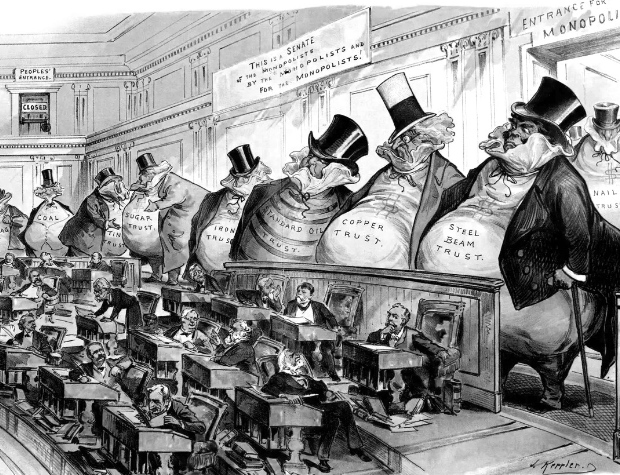Contemporary Problems in Anti-Monopoly and Regulated Industries I: Framing the Problem
Faculty: Amy Kapczynski, Suresh Naidu, Sandeep Vaheesan

Welcome to the LPE AMRI webpage! Since its inception, the LPE Project has focused on challenging concentrated economic and political power. In 2020 and 2021, we hosted the Anti-Monopoly and Regulated Industries (AMRI) Summer Academy. Our AMRI faculty, drawing on cutting-edge scholarship in law, economics, and social science, imparted an understanding of the unique challenges of 21st century corporate power and ways to confront it.
In order to further this work, we are sharing the AMRI Academy lectures with anyone who would like to view them. The videos are divided into two parts. The first part, “Foundations,” frames the problem of monopoly, the history of anti-monopoly and public utility traditions, and the modern politics of antitrust law. The second part, “Applications,” analyzes corporate power in specific sectors: banking and finance, technology, labor, and healthcare and pharmaceuticals.
You can track your progress in the course by checking the boxes once you have completed a session. So long as you don’t erase your cookies, the webpage will save your spot. Happy viewing!
Faculty: Amy Kapczynski, Suresh Naidu, Sandeep Vaheesan
Faculty: Amy Kapczynski, Corinne Blalock, Jay Varellas
Faculty: William Novak
Faculty: Frank Pasquale
Faculty: Mehrsa Baradaran, Saule Omarova, Morgan Ricks
Faculty: Frank Pasquale
Faculty: Kate Andrias, Sandeep Vaheesan
Faculty: Allison K. Hoffman, Amy Kapczynski